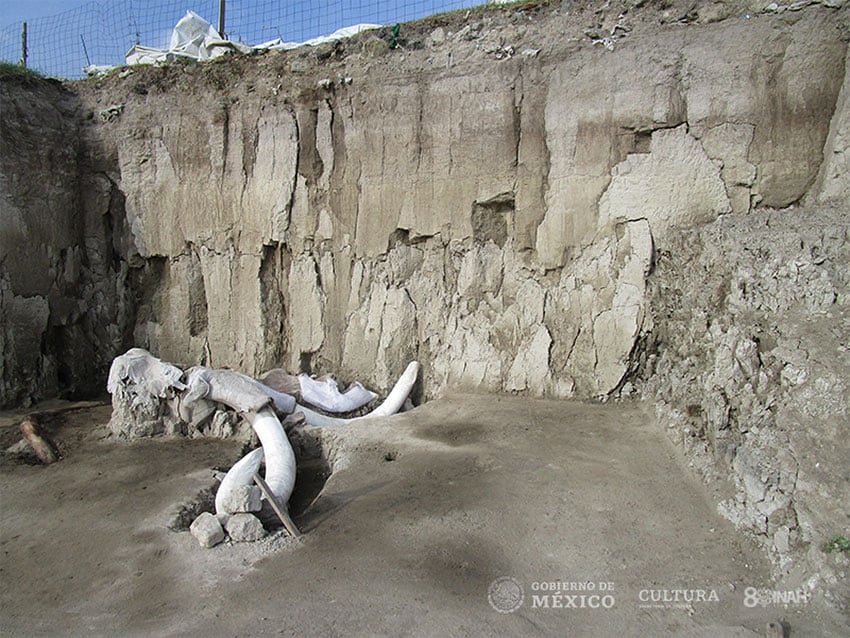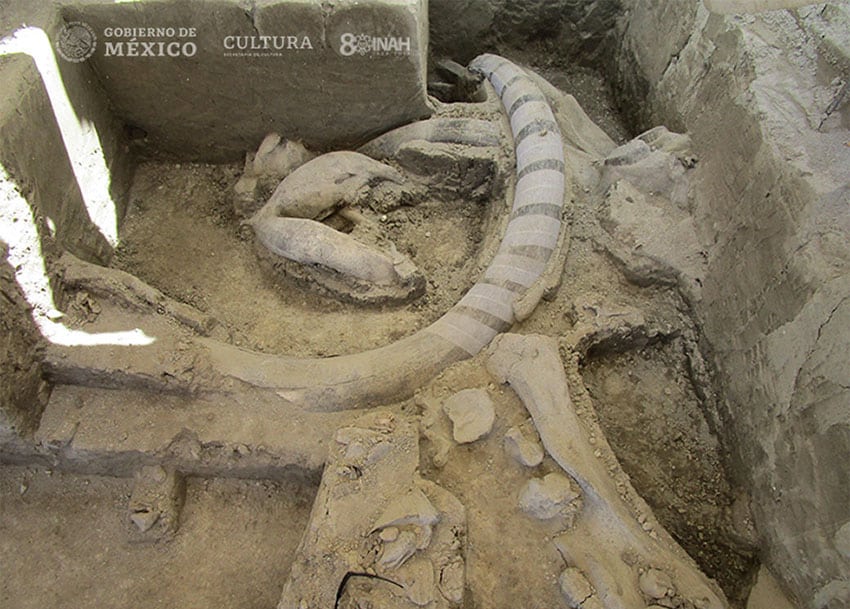Two mammoth traps have been found in Tultepec, México state, demonstrating that hunters in the late Pleistocene era used more sophisticated hunting methods than previously thought.
The National Institute of Anthropology and History (INAH) said this week that the traps are the first to be discovered anywhere in the world.
Workers found the 1.7-meter-deep pits in January on a municipal property about 40 kilometers north of Mexico City while preparing the land for a garbage dump.
During a 10-month excavation by INAH archaeologists, more than 800 bones from at least 14 mammoth skeletons as well as the jawbone and two vertebrae of a camel and the tooth of a horse were found in the traps, which were built about 15,000 years ago.
Archaeologists detected a spear wound on the front of one of the mammoth skulls they found.

It is believed that hunters may have steered the now-extinct mammals into the traps using torches and branches.
Archaeologists previously thought that hunters only killed mammoths when they were easy targets because they were hurt or had been trapped naturally in swamplands or mud.
INAH director Diego Prieto said the discovery “represents a watershed, a turning point in what until now we imagined to be the interaction between hunter-gatherers with these huge herbivores.”
Luis Córdoba Barradas, leader of the excavation team, said that archaeologists believe that there could be three more mammoth traps in the area.
INAH archaeology coordinator Pedro Sánchez Nava said the site won’t be opened to the public but the remains will go on display at the Mammoth Museum in Tultepec.
A mammoth skeleton was previously found in Tultepec in 2016 just two kilometers from the site where the traps were discovered.

Remains of the extinct mammals, ancestors of modern-day elephants, have also been found in other parts of Mexico including Puebla and Jalisco.
Source: El Universal (sp), BBC (en)
